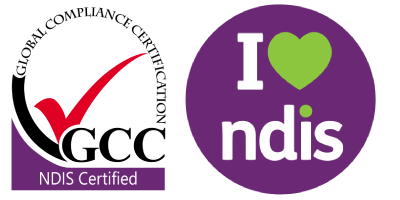Complaints Policy
The right to be heard is a fundamental human right. AbilitySeer is committed to the preservation of human rights for all people.
AbilitySeer is committed to providing a complaints mechanism that:
- Takes complaints seriously.
- Treats claimants with respect and without retribution.
- Is transparent and fair.
- Is confidential.
- Assists complaints with specific needs to access necessary supports (eg interpreters).
- Is regularly reviewed.
- Informs organizational change and development.
- Complies with all relevant legislation and regulation.
Purpose
To investigate external complaints made about AbilitySeer.
Definitions
External complaints | Complaints about AbilitySeer that are made by any person who is not an AbilitySeer staff member. |
Client complaints | External complaints made by or on behalf of a client or potential client of AbilitySeer. |
Third-Party complaints | External complaints made by parties involved in an advocacy case other than the client (eg by a service provider, departmental official, or relative of the client). |
Appeal | Where a complaint or the employee complained about requests in writing a reconsideration or further investigation of a complaint, investigated and determined by General Manager. |
Informal complaint | An external complaint that is not made in writing. |
Immediately | Within five working days of receiving the complaint. |
The GENERAL MANAGER | The General Manager of AbilitySeer. |
Provisos
This policy relates to complaints that do not contravene any laws of legislation. Potentially unlawful behaviour may be covered by legislation which will determine how the grievance is to be handled.
Making a Complaint
Anyone seeking advocacy or NDIS Support Coordination from AbilitySeer will be given verbal information and offered written information about how to make a complaint either:
- When they are accepted as a client of AbilitySeer; or
- When they are advised they cannot be accepted.
If advocacy continues beyond a 12-month period, this information is repeated once each year. A record of providing this information should be noted in the client file.
Client complaints may be in the form of an informal complaint or a complaint in writing.
Third-Party complaints must be made in writing, and identify the outcome required.
Initial Handling
All external complaints will, in the first instance, be investigated and determined by the GENERAL MANAGER.
Complaints will be handled sensitively and confidentially. They will not be discussed in public areas of AbilitySeer. Where an outcome of a complaint leads to a change in policy or practice, the complaint may be used as context for staff to understand the change and the need for change.
On the receipt of a complaint, the GENERAL MANAGER will immediately: |
|
Investigation of complaints by the GENERAL MANAGER
If the GENERAL MANAGER undertakes the investigation and determination of the complaint, the general manager will:
- Inform the complainant of the timeframes and process for investigating the complaint.
- Inform the complainant of their entitlement to have an advocate or other person assist them with their complaint.
- Invite the Complainant to provide any further supporting information.
- Discuss the complaint with the person/s against whom the complaint is made.
- Investigate the circumstances surrounding the complaint and review all relevant documentation.
- Make a decision on what action, if any, should be taken.
- Inform the complainant in writing of the outcome of the investigation and outline any action to be taken.
- Inform the complainant of further options if they are dissatisfied with the outcome of the complaint.
- Inform the person/s against whom the complaint was made of the outcome of the investigation and any action to be taken.
- Minute the details of the complaint, investigation process, and outcome in a complaints register.
- Keep track of the numbers, nature, and outcome of complaints, and review each month.
Referral to an External Complaints Handling Body
If a decision is taken to refer a complaint to an external complaint handling body:
- The complainant will be provided with information and contact details for external bodies which may be relevant.
- The complainant will be given information about the availability of support to make a complaint.
Retention of information
AbilitySeer Privacy of Information and confidentiality policy will apply to information collected during the complaint investigation process.
Outcomes of the complaint process
The outcomes of the complaint process may be:
- Change in policy and/or procedures.
- Change of advocate and/or advocacy strategy.
- Cessation of advocacy for the client.
- Starr training, counselling and/or disciplinary proceedings.
- No changes in AbilitySeer policy and/or procedures are required and no action is required with respect to the staff.

